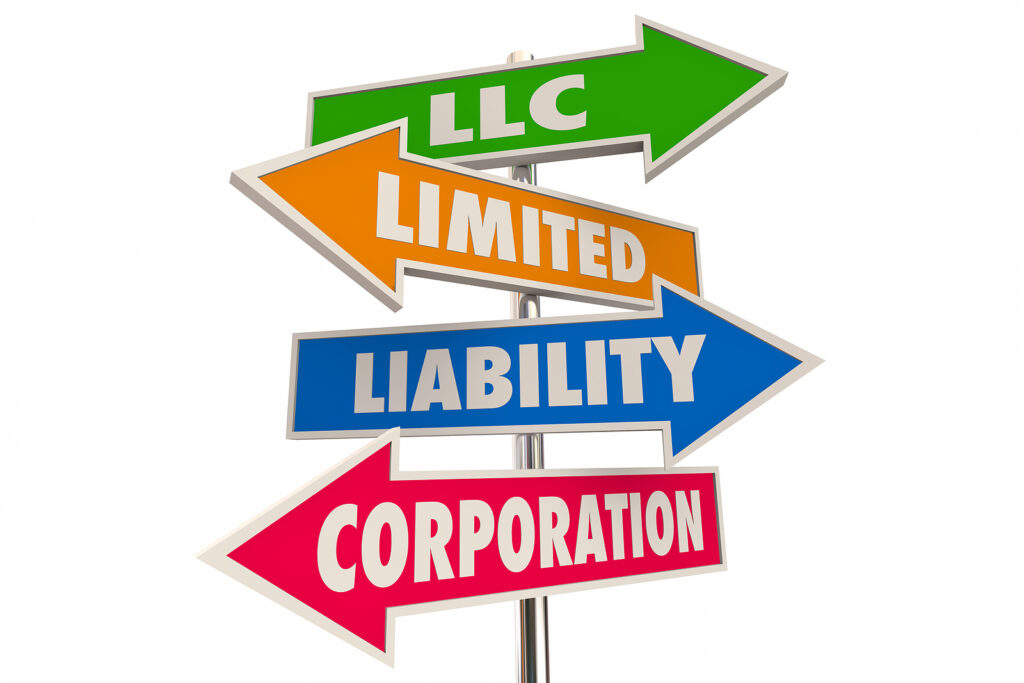Choosing the right business structure is one of the most important decisions you will make as an entrepreneur. The two most common structures are Corporations and Limited Liability Companies (LLCs). In this blog, we will compare and contrast these two structures to help you decide which one is right for your business.
Liability Protection
One of the primary reasons entrepreneurs choose to incorporate or form an LLC is to protect their personal assets from business liabilities. Both structures offer limited liability protection, which means that the owners (shareholders in a corporation or members in an LLC) are generally not personally responsible for the debts or obligations of the business.
In a corporation, shareholders are typically not liable for the company’s debts or legal obligations. However, if a shareholder personally guarantees a business debt or engages in improper activities, the shareholder may be held personally liable.
Similarly, in an LLC, members are generally not personally liable for the debts or obligations of the business. However, if a member personally guarantees a business debt or acts improperly, the member may be held personally liable.
Taxation
Another important consideration when choosing a business structure is taxation. Corporations are generally taxed as separate entities, which means that they must file their own tax returns and pay taxes on their profits. In addition, shareholders must pay taxes on any dividends they receive from the corporation.
LLCs, on the other hand, are generally considered pass-through entities for tax purposes. This means that the LLC itself does not pay taxes on its profits. Instead, the profits are typically passed through to the members, who report them on their individual tax returns and pay taxes on them accordingly.
How corporations and LLCs are treated for tax purposes may vary, however, depending on how they are set up. A business attorney or certified public accountant can help you determine which structure is better for you.

Steps to form an LLC
Now that we’ve covered the benefits of forming an LLC, let’s take a closer look at the steps involved in the process. Keep in mind that the specific requirements may vary depending on your state or country, so be sure to check local requirements before getting started.
- Choose a name: Your LLC will need a unique name that is not already in use by another business in your state. You can check the availability of your desired name by searching your state’s business name database.
- File articles of organization: This is the legal document that establishes your LLC as a separate legal entity. You will need to include information such as your LLC’s name, address, purpose, and the names of its members. You will also need to pay a filing fee, which varies by state.
- Draft an operating agreement: An operating agreement is a legal document that outlines how your LLC will be run, including how profits and losses will be allocated, how decisions will be made, and how members can join or leave the LLC.
- Obtain necessary licenses and permits: Depending on your industry and location, you may need to obtain certain licenses or permits before you can begin operating your LLC.
- Obtain an Employer Identification Number (EIN): This is a unique nine-digit number assigned by the IRS that identifies your LLC for tax purposes. You can apply for an EIN online for free.
- Register for state and local taxes: Depending on your state and city, you may need to register for various taxes, such as sales tax or payroll tax.
